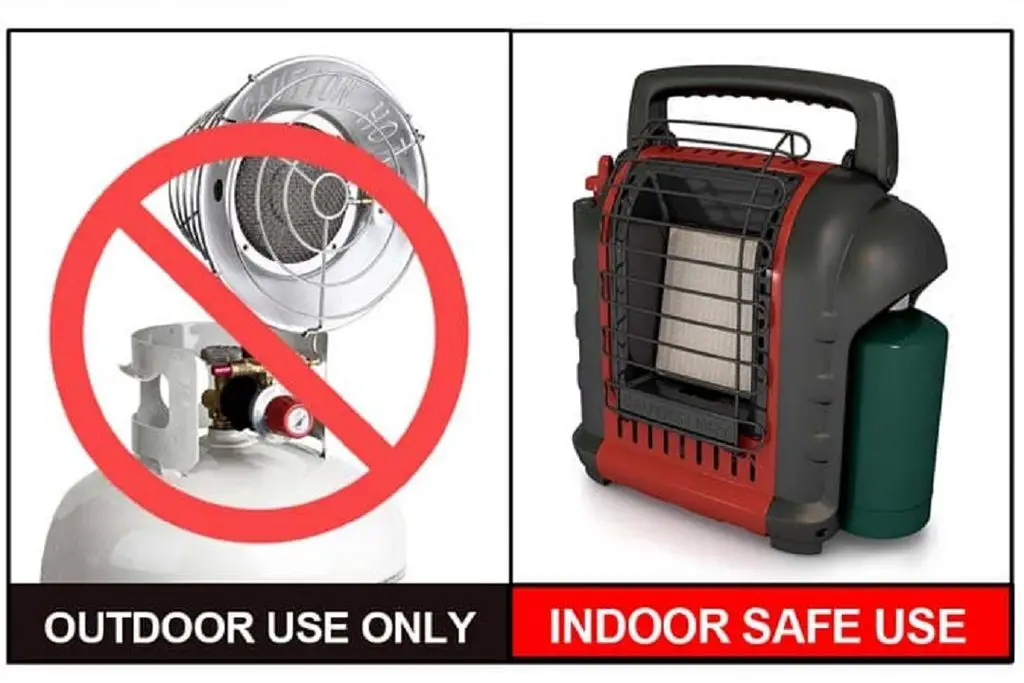Are Propane Heaters Safe to Use Indoors: Heated Debate
You need a reliable way to stay safe and warm in any weather, but storms can leave you without electricity. Having a simple backup plan like a propane heater could save you a lot of trouble and cold toes. However, burning fuel indoors isn’t always a good idea. Can you use propane gas heaters in the house or camper? Well, I wouldn’t recommend trying it with any ‘outdoor’ heaters, since they work differently. The wrong heater could cause severe problems for you. I’ll help you learn the differences, and show you some great propane heaters that work well in enclosed spaces.
Moreover, staying safe isn’t merely about the equipment. The way you use your gear also matters a great deal. Hence, safety is more than choosing high-quality options. I’ll explain how to safely use an indoor propane heater to stay warm without too much risk.
Are propane heaters safe to use indoors? Propane heaters are safe to use indoors. Intriguingly, some incredibly similar-looking models have substantially different venting systems. So, you need to be sure your propane heater is made for indoor use. Otherwise, you could have unwanted fumes and even end up sick or dead if you fall asleep with an outdoor heater inside your home.
Indoor Propane Heater Safety
Staying safe with an indoor propane heater isn’t difficult. There are just a few rules you need to know. Plus, you should always read the manufacturer’s instructions. The checklist below will help you rest easy while you stay warm.
One of the most popular and trusted options is the Little Buddy Indoor Safe Propane Heater from Amazon. You can find these inside campers, cabins, and homes that use propane. With twenty-five percent more heat than catalytic heaters, you’ll appreciate the warmth of a Little Buddy. A one-pound disposable propane bottle will get you over five hours of toasty heat. Find out more by clicking here.
Indoor Propane Heater Safety Checklist
- Make sure you have an indoor propane heater. The outdoor models can look very similar, but they serve different purposes and require more ventilation.
- Don’t leave your heater unattended. It stands to reason that when you’re right there, you get the benefit of the heat, and you know if something goes wrong.
- Turn it off. If you’re going to another part of the house or leaving to go out, turn the heater off completely. Always double-check to see that it’s not still running.
- Keep away. Not only should you keep your body clear of an indoor propane heater, but anything flammable as well. Maintain a minimum safe distance from drapes, carpets, and other fabric, plastic, or heat-sensitive items.
- Get carbon monoxide detectors. Remember to test them, check the batteries, and always follow the installation instructions. Although typically propane burns clean, these sensors will warn you if something goes wrong. Since carbon monoxide has no odor, you might not notice otherwise.
Carbon Monoxide Poisoning
Propane is one of the safest and cleaned burning of all gasses. However, like all gasses, propane can cause problems. When it burns off cleanly, there’s nothing to be concerned about. However, should the gas fail to incinerate, you could get sick or even die.
Symptoms of carbon monoxide poisoning include the following symptoms: Headaches, nausea, upset stomach, vomiting, confusion, blurry vision, chest pain, shortness of breath, weakness, and loss of consciousness. Death can also occur. Fortunately, a properly used and maintained propane heater should never emit CO2 gas.
When you inhale carbon monoxide, it builds up inside your lungs. Unfortunately, it can easily take the place of oxygen in your bloodstream. As a result, you are breathing, but don’t get any benefit from the air around you.
Propane Heaters are Better
One of the best things about an indoor propane heater is safety. Most models come with automatic shutoffs for overheating, low fuel levels, CO2, and other potential hazards. Hence they’re safer than other heaters, which only turn off when they reach the designated temperature.
Luckily, that’s not the only benefit of using an indoor propane heater. Propane burns hot and clean. Hence you use less fuel to heat more space. It’s very efficient, which allows you to cut costs. We all like saving money.
Additionally, most propane heaters require no electricity. If they use a spark, it’s generated internally without the need for cords and wall sockets. Otherwise, you might need to light your heater with a long match or camping lighter. As a primary or emergency backup heater, propane is ideal. Even the nastiest blizzard that knocks out power for days is no match for a propane heater.
Are you looking for an upgrade? Check out the high-quality Mr. Heater MH9BX Propane Heater from Amazon. You’ll be able to heat up to two-hundred-twenty-five square feet of space. Moreover, Mr. Heater is exceptionally portable at less than eight pounds. Plus, you’ll appreciate not needing electricity if you ever blow a fuse. Have yours delivered when you order here.
Storing Propane for Heaters
The size of your propane heater will determine how you buy and store propane. Small heaters often use the disposable one-pound propane cylinders. Meanwhile, mid to large-sized heaters most often connect to the larger twenty (or more) gallon tanks.
Storing propane is safe and easy. Keep your propane tanks outdoors in a cool, dry area. Moisture can corrode metals. Moreover, temperatures above a hundred and twenty are not safe.
A well ventilated, shady area is excellent for storing propane in most climates. You should never keep flammable gas inside your home. Basements, attics, and other areas aren’t suitable for propane tanks or cylinders.
You should keep your tanks away from any possible sources of sparks. Gas grills and even outdoor refrigerators or freezers spark. Although leaks in tanks are rare, they can occur. So, make sure you have at least ten feet or more between your containers and any possible source of ignition.
If your tanks leak, they often smell like rotten eggs. This isn’t natural for the gas. Instead, it’s an odor agent that is added for safety, so you will notice the smell if anything goes wrong with the storage tank.
Properly stored propane can last up to thirty years. Furthermore, sixteen ounces of propane will last a small heater for two to six hours. Depending on how much space you’re heating and how warm you need to stay, you can get a lot of heat out of very little fuel.
Cleaning & Maintenance for Propane Heaters
It’s essential to clean, store, and maintain your indoor propane heater properly for safety. The good news is that it doesn’t take long, and you don’t need any special equipment. Additionally, you can cut down on cleaning time by getting or making a heater cover for when it’s not in use.
Please make sure you only place the cover over a wholly cooled off heater. Otherwise, it’s a fire hazard. Covering your heater when you don’t need it in warm months will keep dust and debris out. However, you also need to make sure you don’t store a propane heater anywhere damp. Water can damage it over time.
When you first set up your indoor propane heater for the cold season, make sure you dust it off. Take the time to wipe it down and check that there are no loose parts or damages anywhere.
After that, you simply need to make sure you keep it clean. Depending on the size of your space, climate, and number of people and animals you live with, dust weekly or more often as needed. Keep the heater free from debris as well. Before turning propane heaters on, check that there’s nothing there that shouldn’t be inside of your heater.
You should always check the connections. Regardless of what type of indoor propane heater you have, the fuel intake to your propane tank must be clean and undamaged. Whenever you change an empty propane container, take a quick peek. If necessary, wipe it off with a clean, soft towel. Microfibers are best, but never use paper towels because they can leave behind small particles.
The ProCom Liquid Propane Vent Free Ice House Heater can keep up to three-hundred square feet warm. Moreover, the ten-foot hose makes it easy to connect to larger cylinders of propane wherever they’re located. Additionally, the thermostat gives you excellent temperature control. To grab your ProCom from Amazon, click here.
Anytime you clean the inside of a propane heater, exercise additional caution. You don’t want to knock any parts out of alignment. Luckily, if you store your indoor heater with a cover, you should rarely, if ever, need to clean the inside of it.
Final Thoughts
Always use your indoor propane heater safely and carefully. Some home solutions are more complicated than others and require a little more planning. However, that doesn’t mean you can’t use them. Instead, it’s an excellent reminder that you need to read the directions.
Anytime you are concerned about tripping over your propane heater, please move it. Similarly, if you don’t have enough space to set up, then you need to re-think your heating situation. Unfortunately, a housefire is also warm.
Regardless of a few sensible precautions, it’s safe to use an indoor propane heater to stay warm. Moreover, propane is easy to store and relatively inexpensive.

